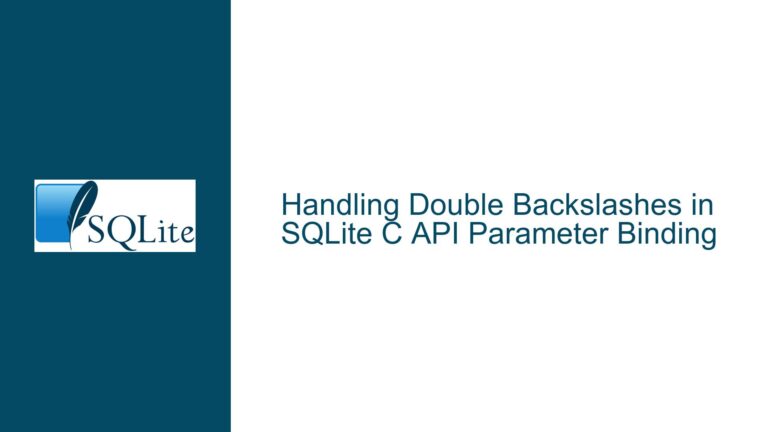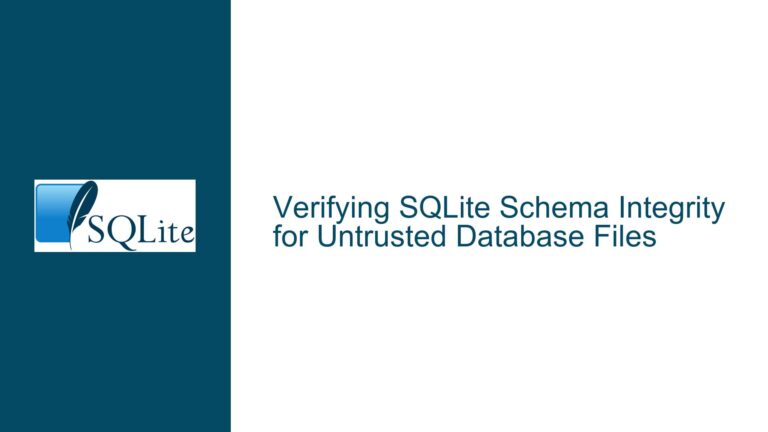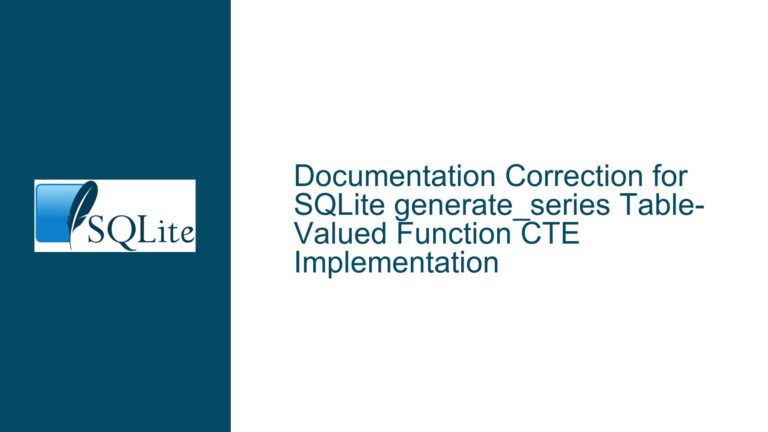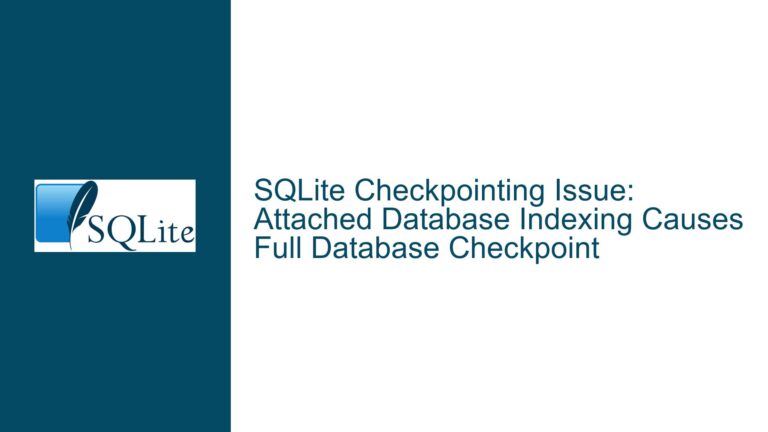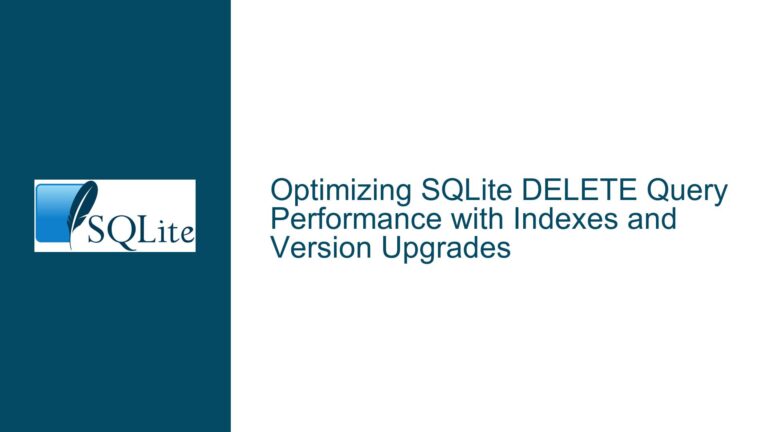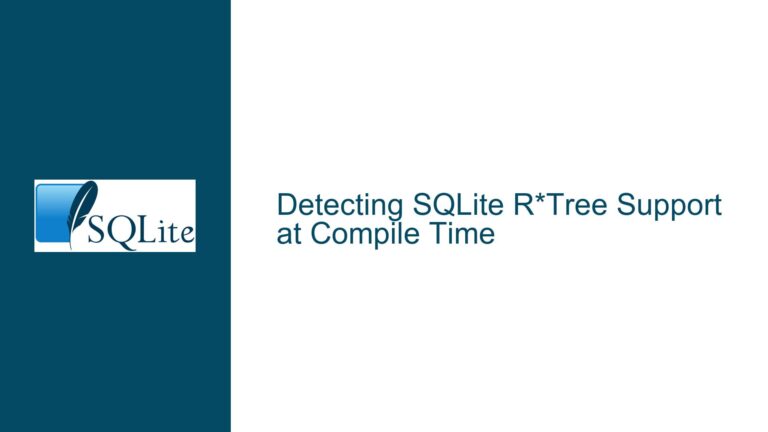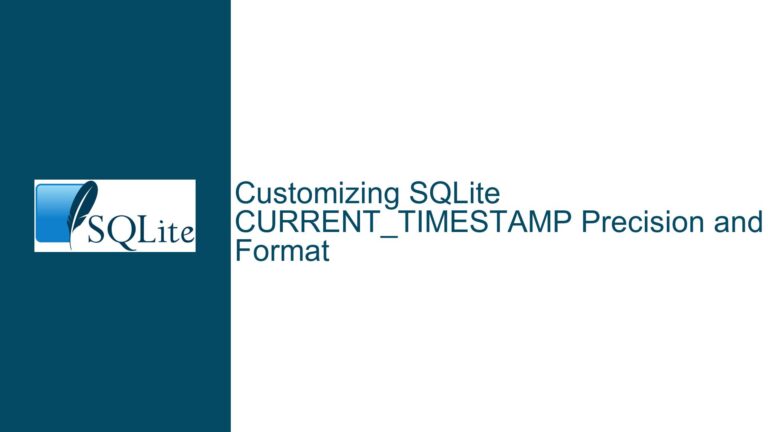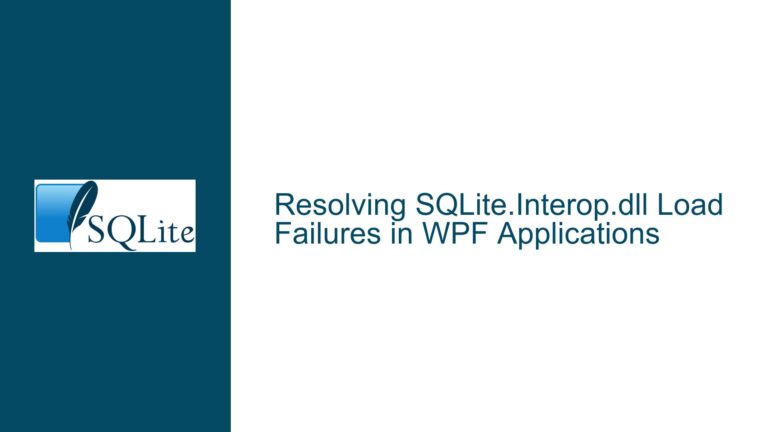Inserting and Managing BLOBs in SQLite: Best Practices and Troubleshooting
Inserting Images as BLOBs in SQLite When working with SQLite, one common task is storing binary large objects (BLOBs) such as images directly in the database. This can be particularly useful for applications that require portability or centralized data storage. However, inserting and managing BLOBs in SQLite comes with its own set of challenges, especially…

